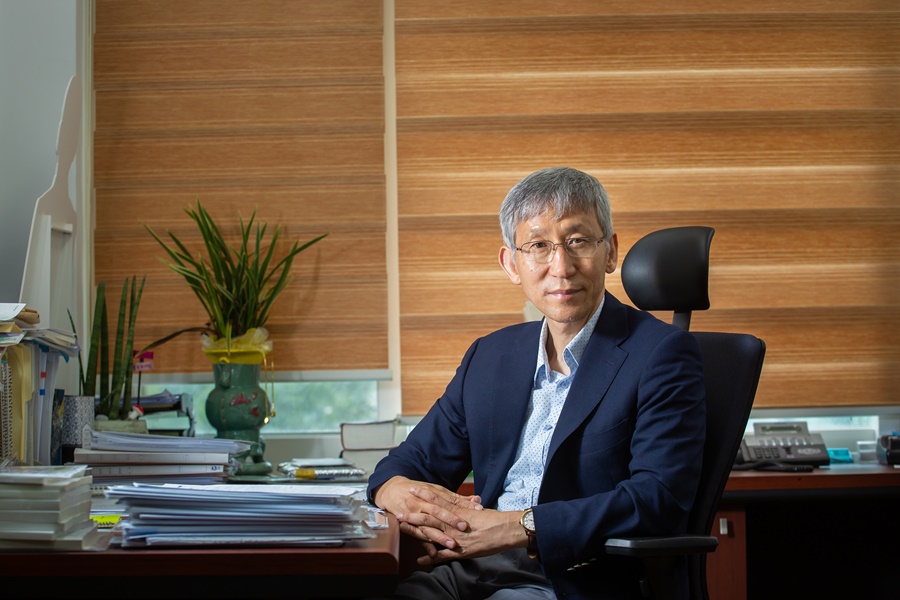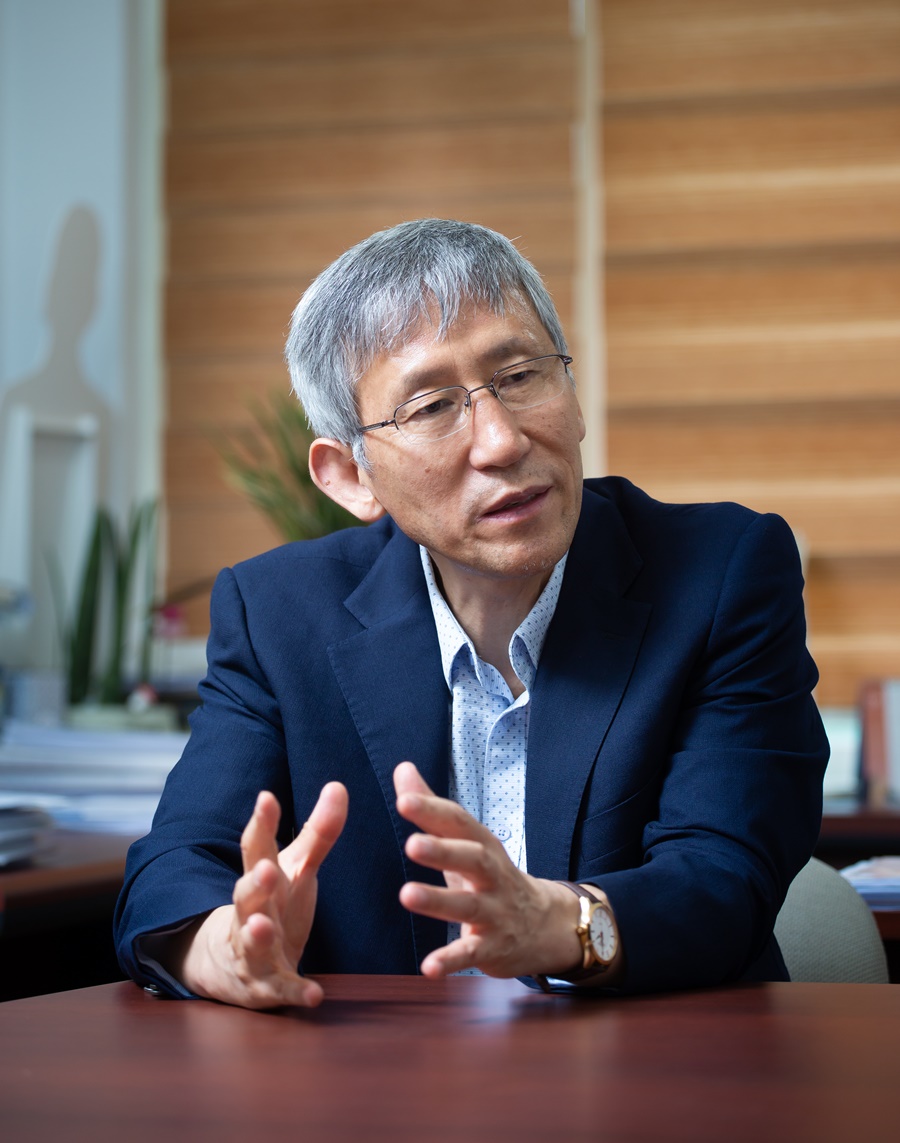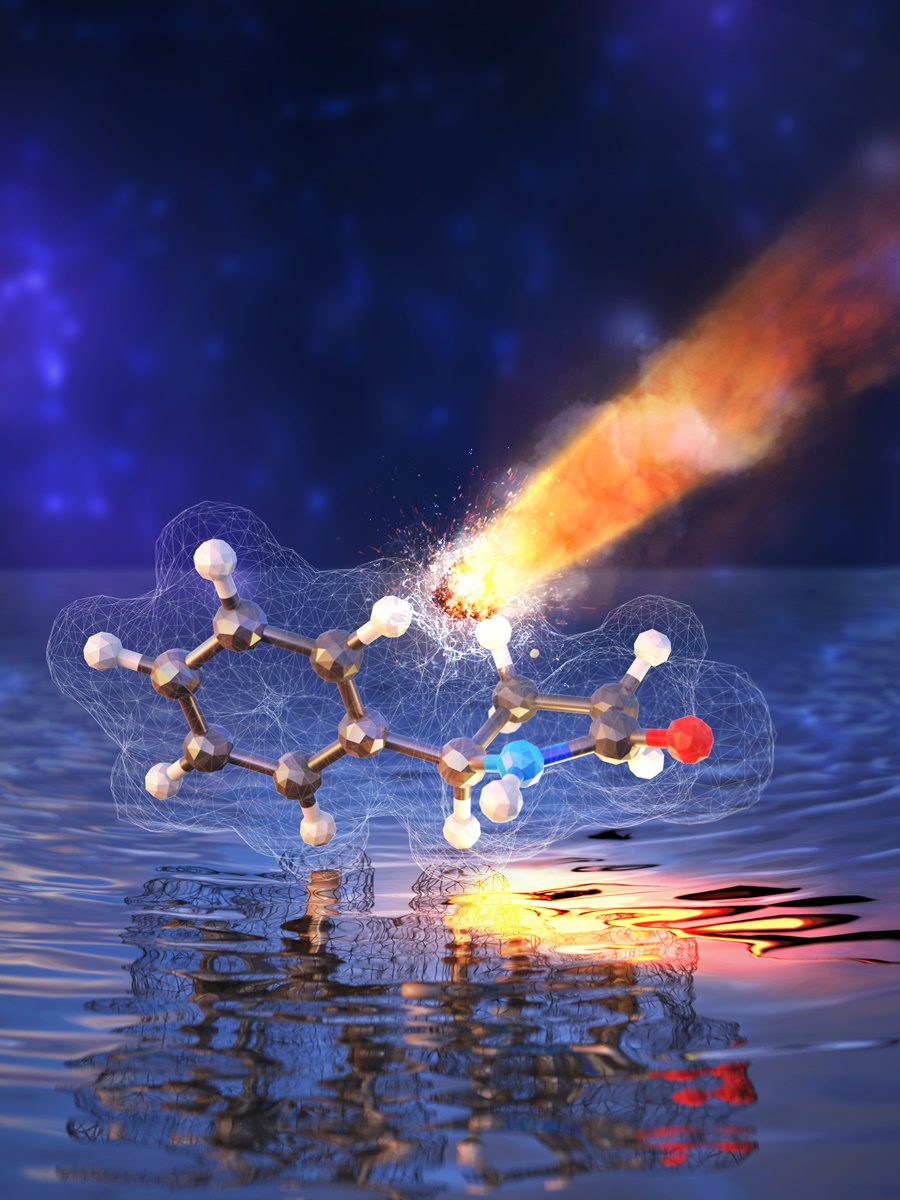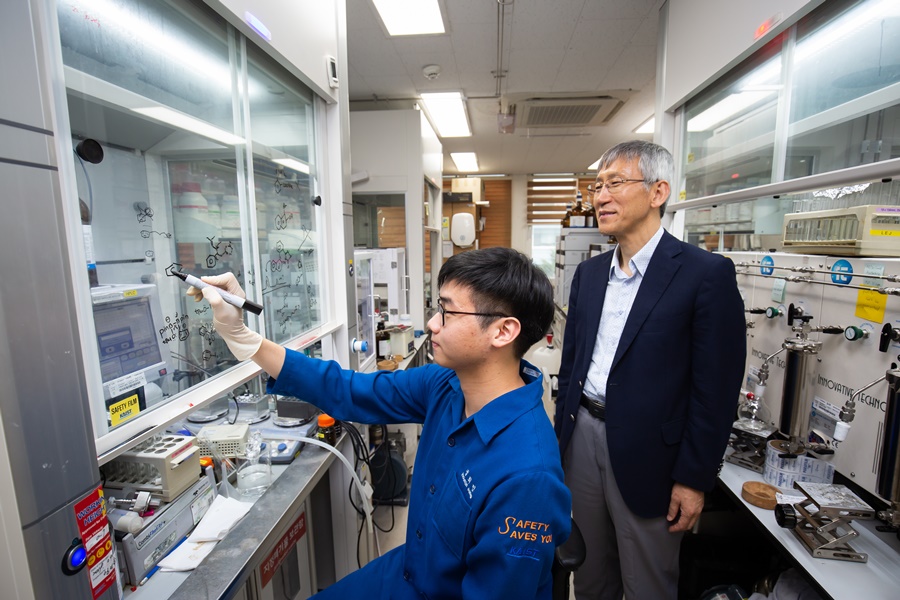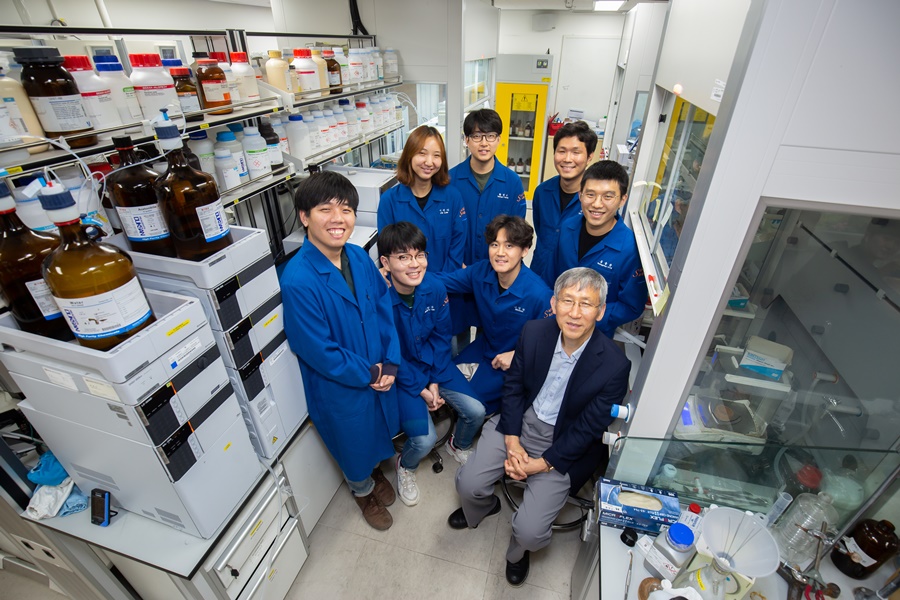주메뉴
- About IBS 연구원소개
-
Research Centers
연구단소개
- Research Outcomes
- Mathematics
- Physics
- Center for Underground Physics
- Center for Theoretical Physics of the Universe (Particle Theory and Cosmology Group)
- Center for Theoretical Physics of the Universe (Cosmology, Gravity and Astroparticle Physics Group)
- Dark Matter Axion Group
- Center for Artificial Low Dimensional Electronic Systems
- Center for Theoretical Physics of Complex Systems
- Center for Quantum Nanoscience
- Center for Exotic Nuclear Studies
- Center for Van der Waals Quantum Solids
- Center for Relativistic Laser Science
- Chemistry
- Life Sciences
- Earth Science
- Interdisciplinary
- Center for Neuroscience Imaging Research (Neuro Technology Group)
- Center for Neuroscience Imaging Research (Cognitive and Computational Neuroscience Group)
- Center for Algorithmic and Robotized Synthesis
- Center for Genome Engineering
- Center for Nanomedicine
- Center for Biomolecular and Cellular Structure
- Center for 2D Quantum Heterostructures
- Center for Quantum Conversion Research
- Institutes
- Korea Virus Research Institute
- News Center 뉴스 센터
- Career 인재초빙
- Living in Korea IBS School-UST
- IBS School 윤리경영


주메뉴
- About IBS
-
Research Centers
- Research Outcomes
- Mathematics
- Physics
- Center for Underground Physics
- Center for Theoretical Physics of the Universe (Particle Theory and Cosmology Group)
- Center for Theoretical Physics of the Universe (Cosmology, Gravity and Astroparticle Physics Group)
- Dark Matter Axion Group
- Center for Artificial Low Dimensional Electronic Systems
- Center for Theoretical Physics of Complex Systems
- Center for Quantum Nanoscience
- Center for Exotic Nuclear Studies
- Center for Van der Waals Quantum Solids
- Center for Relativistic Laser Science
- Chemistry
- Life Sciences
- Earth Science
- Interdisciplinary
- Center for Neuroscience Imaging Research (Neuro Technology Group)
- Center for Neuroscience Imaging Research (Cognitive and Computational Neuroscience Group)
- Center for Algorithmic and Robotized Synthesis
- Center for Genome Engineering
- Center for Nanomedicine
- Center for Biomolecular and Cellular Structure
- Center for 2D Quantum Heterostructures
- Center for Quantum Conversion Research
- Institutes
- Korea Virus Research Institute
- News Center
- Career
- Living in Korea
- IBS School
News Center
| 제목 | Discovering catalysts to convert hydrocarbons into useful chemicals | ||||
|---|---|---|---|---|---|
| 작성자 | 전체관리자 | 등록일 | 2020-06-17 | 조회 | 3071 |
| 첨부 |
 thumb.jpg
thumb.jpg
|
||||
Discovering catalysts to convert hydrocarbons into useful chemicalsCHANG Suk Bok, Director, Center for Catalytic Hydrocarbon Functionalizations
CHANG Suk Bok, director of the IBS Center for Catalytic Hydrocarbon Functionalizations (Distinguished Professor of Organic Chemistry, KAIST), received the Korea Best Scientist and Engineer Award for 2019 in the category of science. Director Chang has been listed among the Highly Cited Researchers (HCR) in chemistry by Clarivate Analytics, a company that analyzes the world's academic data, for five consecutive years. Last year, the Center for Catalytic Hydrocarbon Functionalizations (CCHF), led by Director Chang, was rated "Outstanding" by the IBS in the 5th year evaluation. Director Chang is highly respected at home and abroad, and we met him at the office of the Department of Chemistry, Korea Advanced Institute of Science and Technology (KAIST), where the CCHF is based. C-H bond activation is the most challenging area“I am thankful that I was recognized for my hard work, but I also feel obliged to other researchers because I have been able to focus on my research thanks to support from the IBS and KAIST.” Despite his humble remark on the award, he has demonstrated exceptional research performance recognized worldwide in the challenging and difficult field of carbon-hydrogen bond activation (C-H activation). He has long dedicated himself to, particularly, research into activating hydrocarbons, which naturally occur in abundance, with catalysts such as transition metals to convert them into useful resources. What is so fascinating about chemistry that he is so driven to conduct ground-breaking research and has received such honors as the Best Scientist & Engineer Award? Director Chang answered this question by introducing two cases where chemistry greatly benefited mankind in the 20th century: ammonia synthesis and penicillin synthesis. In the early 1990s, two German chemists developed ways to mass-produce ammonia, a principal component of fertilizer, from nitrogen and hydrogen in the atmosphere. Both scientists won the Nobel Prize in Chemistry in recognition for their contribution to solving food shortages. Meanwhile, British chemists identified the structure of penicillin, the world's first antibiotic substance extracted from penicillium mold and developed the technology for the mass production of penicillin. Chemistry was at the heart of both feats, which together greatly increased population by resolving food shortages and numerous medical problems. Director Chang anticipated that hydrocarbons would become an important catalyst in the 21st century. He said, “Success in the conversion of hydrocarbons, which exist in large quantities in nature like methane, ethane, propane, and butane, into other useful chemicals, would be the third major advance in chemistry for mankind, following ammonia and penicillin. For instance, if we can transform hydrocarbons into methanol, alcohol, gasoline, and the like through a simple catalytic reaction, we will not have to be concerned about energy even if the world runs out of petroleum. He added, “The reactivity of hydrocarbons such as methane (CH4) is so low that it is instrumental to the development of catalysts to activate them. Many chemists are now dealing with this matter, but the catalysts developed thus far are of little real use because they are only intended to activate hydrocarbon compounds under certain conditions." Secret to receiving the highest rating in the review of IBS centers
The CCHF led by Director Chang was rated "Outstanding" by IBS last year in the review of IBS research centers, which was conducted to mark the fifth anniversary of the IBS research centers, in recognition for its world-class achievements in the research into C-H activation and its leadership in the field of organic chemistry worldwide. “Before being subsidized by the IBS, we were at the bottom. We were just underdogs. [laughing] Since we got the support when our research capability was improving instead of reaching the peak, we could be evaluated as doing better than before. I guess that is why we were well-received by the IBS.” In fact, since 2012 when Director Chang was appointed as director of the IBS campus center, the quantity and quality of his papers have increased and improved. The average number of papers published each year increased nearly threefold to 11.7 after the appointment from 4.2 between 1987 and 2012. The proportion of the papers ranking among the top 1% by citations nearly tripled from 5.8% to 19.5%. The number of citations per paper also rose. He has been named a Highly Cited Researcher (HCR) in chemistry for five consecutive years from 2015 to 2019. Clarivate Analytics announces highly-cited researchers based on the papers ranking in the top 1% by citations for their field every year. Director Chang said, “I believe that our performance is attributable to our attempting and succeeding in what others cannot do, instead of following others' studies, and getting to the heart of the things unknown." The research published in Science in 2018 is a case in point. Director Chang and researchers of the CCHF including Deputy Director BAIK Mu Hyun succeeded in developing a highly-efficient iridium catalyst and in synthesizing gamma-lactam rings at room temperature. The gamma-lactams are key building blocks in complex organic molecules, such as medicines for epilepsy and angiogenesis inhibitors, and are widely used in medical, synthetic, and material chemistry. Director Chang explained, "We could develop the new catalyst through a structured approach whereby an optimal catalyst is analyzed and predicted through computational chemistry before conducting experiments." Overcoming challenges and moving into the global spotlightAs of March 2019, Director Chang had published over 200 papers. His papers were cited by other scientists as many as 22,145 times.
Which research performance is most memorable for him? Director Chang recalled the days when he submitted papers during a tough stretch of time when he was an assistant professor at Ewha Womans University. After struggling to produce outcomes under difficult circumstances with researchers who were graduate and undergraduate students, he eventually published research findings on the development of catalysis system in the Journal of The American Chemical Society in 2000. He was under great pressure to prove himself immediately after moving to KAIST in 2002. He said, "I submitted an incomplete paper to the Journal of the Korean Chemical Society, and I received terrible feedback from the reviewers. It was a big blow. I did not modify it; I just withdrew it." He added, "I then resolved to never again submit an incomplete paper. I was ever afterwards determined to do only quality research." This was also when he decided not to care too much about the number of papers published. Director Chang attracted international attention when he published a paper titled “Palladium-Catalyzed C-H Functionalization of Pyridine N-Oxides” in the Journal of The American Chemical Society in 2008. This paper introduced a new method in the field of C-H functionalization and remains widely cited to this day. Director Chang said, “We developed a catalysis system whereby carbon is introduced into pyridine, which is a cyclic compound that contains a nitrogen atom. It was a catalysis system of such great importance in terms of selectivity that it could inspire many people." This achievement helped Director Chang take one step further in his research. This February, researchers led by Director Chang developed catalysts that enable the selective synthesis of chiral gamma-lactams, and this achievement was published in Nature Catalysis. The researchers discovered iridium catalysts that can single out only one molecule from a pair of the symmetric mirror images with 99 percent selectivity. These new catalysts can be applied to selective synthesis of the non-superposable mirror image (chiral gamma-lactams) favorable to a medicine, where appropriate. “Opening a new chapter to blaze a trail in any field”“The greatest strength of the IBS lies in its not pressuring researchers to produce short-term outcomes. It instead encourages researchers to write one good paper rather than writing 100 papers. Its review system also works that way. All we need to do is to take the long view of our studies and open a new chapter, blazing a trail in any field.” What Director Chang considers most important is for researchers to seek their own methodologies in carrying out research instead of merely following others. He emphasizes the importance of originality in research. “Extending existing research is only in the interest of the person who started the research because it only leads to increases in citations of the researcher's papers. It is important to ensure originality in conducting research. Only then can its usefulness be proven and highlighted 10 or 20 years from now.” The CCHF considers novelty of their research and strives to seek something new, whether it is a new approach or interpretation, instead of extending existing research. Director Chang introduced results for research for which he is preparing to submit a paper. He has put his efforts into that research for more than one year. “We have succeeded in separately activating benzene (C6H6) and gaseous reactants produced in the petroleum refining process and coupling them. It is extremely difficult to produce a coupled product with stable two materials. The research is now 99% complete and at the final phase.” The goal of the Center is to solve challenges in chemistry.
When asked what the research goal is for the future, Director Chang answered, “We want to solve difficult problems in the field of chemistry. Defining the structure of metal imido complexes, which are intermediates for amination (C-N bond formation), is one of the challenges to overcome." Nitrogen is the most important element for physiological activities to the extent of being part of 90% of medical substances. Nitrogen compounds are essential skeletons in the pharmaceutical, chemical, and material fields. This also means that it is equally important to develop the catalysts that would efficiently enable amination whereby nitrogen is introduced into an organic molecule. However, metal imido complexes, which are generated in the process of amination reactions, are so reactive that they have been identified only through computational chemistry and have never been directly observed. Director Chang said, “If we can grasp the crystal structure of metal imido complexes and find conditions to stabilize them, it would go a long way towards designing new catalysts for various industries." He, furthermore, intends to broaden the C-H functionalization research, which is his specialty, to introduce amination reactions directly from hydrocarbon compounds. Director Chang said, “There are plenty of methods of introducing nitrogen into compounds, but our researchers intend to introduce nitrogen from the least reactive hydrocarbon. If we succeed, it would reduce the number of reaction steps and the by-products, which would make the process far more practical." “I expect my junior colleagues to surpass me”
“I usually tell my smart students not to come to see me. If they want to discover something new, they should surpass my insights or imagination. Good teachers trust good students and let them proceed with their research as they see fit.” When asked why the CCHF has attracted so much international attention, Director Chang answered, “It is essential to elevate the research group itself. We let students go about their research at their discretion but teach them how to extract indispensable elements of our research subjects and learn about them." At the CCHF, researchers are required to master both theoretical and computational research methods. The paper pertaining to gamma-lactams published in Science was the product of such collaboration. Director Chang said, “All researchers in our group are well accustomed to computational chemistry because we have worked hard to improve our capability in that field. It puts us at a different starting point from other groups." Director Chang emphasized that researchers should be confident in themselves to the extent that they do not care about rival groups if they have their own ingenious research. His research philosophy is to take your time and value the basics. He said, "Going slow means fully understanding the mechanisms and then making new systems based on that understanding. As it goes along, you will also be able to accurately reveal the meanings of new aspects." “I believe that my juniors should be as productive as I am and later surpass me in a new field. We need to raise the bar in the future. I personally think that my successor, who may be a researcher having great potential, needs to elevate this center's competencies a notch higher. I mean that it will be like the Max-Planck-Institut für Kohlenforschung where its director changes but the research directions remain unchanged. I consider that this kind of structure will be able to develop our academic community." Thinking of replacement of the leadership of the CCHF, Director Chang hinted at his little dream of giving KAIST students a lecture on humanities once he steps down from his post at the IBS. Having a keen interest in writing, he enrolled in the Department of Korean Language and Literature at Korea National Open University last year. His dreaming of the road not taken after having reached the top of his field is admirable. |
|||||
| 다음 | |
|---|---|
| 이전 |
- Content Manager
- Public Relations Team : Yim Ji Yeob 042-878-8173
- Last Update 2023-11-28 14:20










